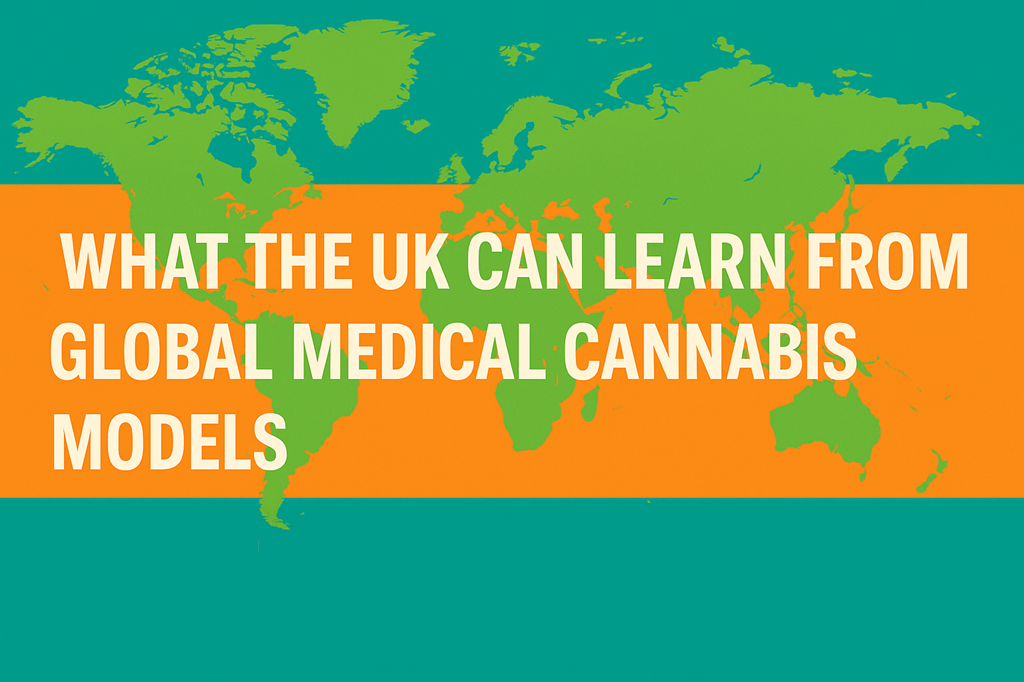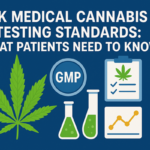What the UK Could Learn From Other Countries’ Medical Cannabis Models

Medical cannabis has been legal in the UK since 2018, yet for most patients, it remains frustratingly difficult to access. The law may have changed, but the system that supports patients has not kept pace. Only a small number of people receive cannabis-based prescriptions through the NHS, and most must turn to private clinics and pay hundreds of pounds every month.
Meanwhile, countries like Germany and Canada have built far more open, structured, and compassionate systems. Their experiences offer important lessons for how the UK could move from cautious legality to practical accessibility.
Germany’s structured access and insurance-backed model
Germany’s medical cannabis programme, launched in 2017, has become one of Europe’s most developed frameworks. Doctors can prescribe cannabis for chronic pain, multiple sclerosis, epilepsy, and a range of other conditions. The key difference is that Germany treats cannabis like any other medicine.
Patients can visit their GP or a specialist, receive a prescription, and have the cost covered by health insurance in most cases. The country’s health insurers now reimburse thousands of prescriptions every month, allowing patients from all backgrounds to access treatment.
This approach works because it combines compassion with structure. Prescriptions are tightly monitored, but patients are not punished financially. In the UK, patients are often left with high private fees or forced to give up treatment entirely. Adopting Germany’s insurance-based model could help normalise medical cannabis, reduce stigma, and make access more equitable.
It would also encourage more doctors to prescribe. Clear clinical guidance and cost coverage instill confidence in medical professionals to recommend cannabis when appropriate.
Canada’s patient-first and export-focused system
Canada’s approach is even more progressive. The country has legalised medical and recreational cannabis, but its medical framework remains central to how patients receive care. Access is patient-focused and designed for simplicity.
Patients can register with a healthcare practitioner, attend online consultations, and order prescribed products directly from licensed producers. This ease of access revokes the unnecessary barriers that still define the UK experience. It also helps maintain consistent medical oversight, since patients are guided by professionals rather than having to rely on unregulated products.
Another standout feature of Canada’s system is its thriving export market. Canadian producers supply medical cannabis to numerous countries through strict licensing and quality control standards. The country’s clear federal regulations have created a trusted global brand.
The UK, by contrast, is home to world-class pharmaceutical expertise but a confusing web of Home Office restrictions. Cultivators and researchers often face months of delays waiting for licence approvals. This situation stifles innovation and discourages foreign investment. If the UK were to simplify its licensing system and promote ethical production, it could become a major player in the global medical cannabis industry.
Lessons from compassionate access zones and pilot schemes
Other countries, beyond Europe and North America, have experimented with innovative approaches to assist patients who are overlooked. Australia’s “compassionate access” initiatives are a strong example. Certain regions have introduced programs allowing patients with severe or terminal conditions to access medical cannabis quickly and cheaply, even if they do not meet all the usual prescription requirements.
These schemes put patient wellbeing above bureaucracy. They also create opportunities for doctors and regulators to study outcomes and refine policy using real-world evidence.
The UK could test a similar concept. The NHS could gather data and provide relief to those most in need by establishing regional pilot zones with relaxed prescribing restrictions. It would also show that medical cannabis can be managed safely and responsibly when regulated properly.
The role of education and licensing
One of the most significant barriers in the UK is not just policy but perception. Many healthcare professionals still feel uncertain or underinformed about cannabis-based medicine. Without accessible training, doctors are understandably reluctant to prescribe.
Germany and Canada tackled this issue by investing heavily in professional education. Thousands of doctors in both countries now understand the medical applications, dosages, and interactions of cannabis products. This has made prescribing both safer and more routine.
Licensing also plays a vital role. In Germany, pharmacies are authorised to prepare and dispense medical cannabis, like any other controlled substance. In Canada, Health Canada oversees producers and maintains strict standards for product quality and lab testing. Patients can trust that what they are taking is safe and consistent.
In the UK, only a limited number of private clinics and pharmacies hold the necessary licences. Streamlining this process would make it easier for established healthcare providers to participate, ensuring better distribution and oversight.
Building a fairer, evidence-based framework
Every country’s journey with medical cannabis has been shaped by its culture, politics, and healthcare structure. Yet the UK’s slow pace is not inevitable. The evidence from abroad is clear: when governments take a patient-centred approach, access improves, stigma fades, and public health outcomes strengthen.
To move forward, the UK needs a policy grounded in evidence rather than caution. This includes:
- Expanding NHS coverage for eligible conditions
- Introducing pilot access zones to collect real-world data
- Simplifying Home Office licensing for cultivation and research
- Providing education and guidance for GPs and specialists
- Encouraging ethical domestic production and export opportunities
The benefits would extend beyond patient wellbeing. A regulated and transparent industry could generate jobs, tax revenue, and research breakthroughs. The UK has the infrastructure and scientific expertise to become a global leader in cannabis-based medicine. What it lacks is a unified, practical strategy.
A shift in attitude and understanding
Ultimately, the most important lesson from abroad is cultural. Countries that treat medical cannabis as part of mainstream healthcare tend to see better results. Patients feel respected, doctors feel supported, and the wider public begins to understand that its use is medicine, not controversy.
In the UK, attitudes are changing slowly, but progress depends on political will. By looking outward to models that already work, the UK can build a compassionate, science-led system that finally matches the needs of its patients.
If you use medical cannabis or are considering treatment, Marucanna provides trusted information and guidance to help you understand your rights, find professional support, and stay up to date with the latest developments.


